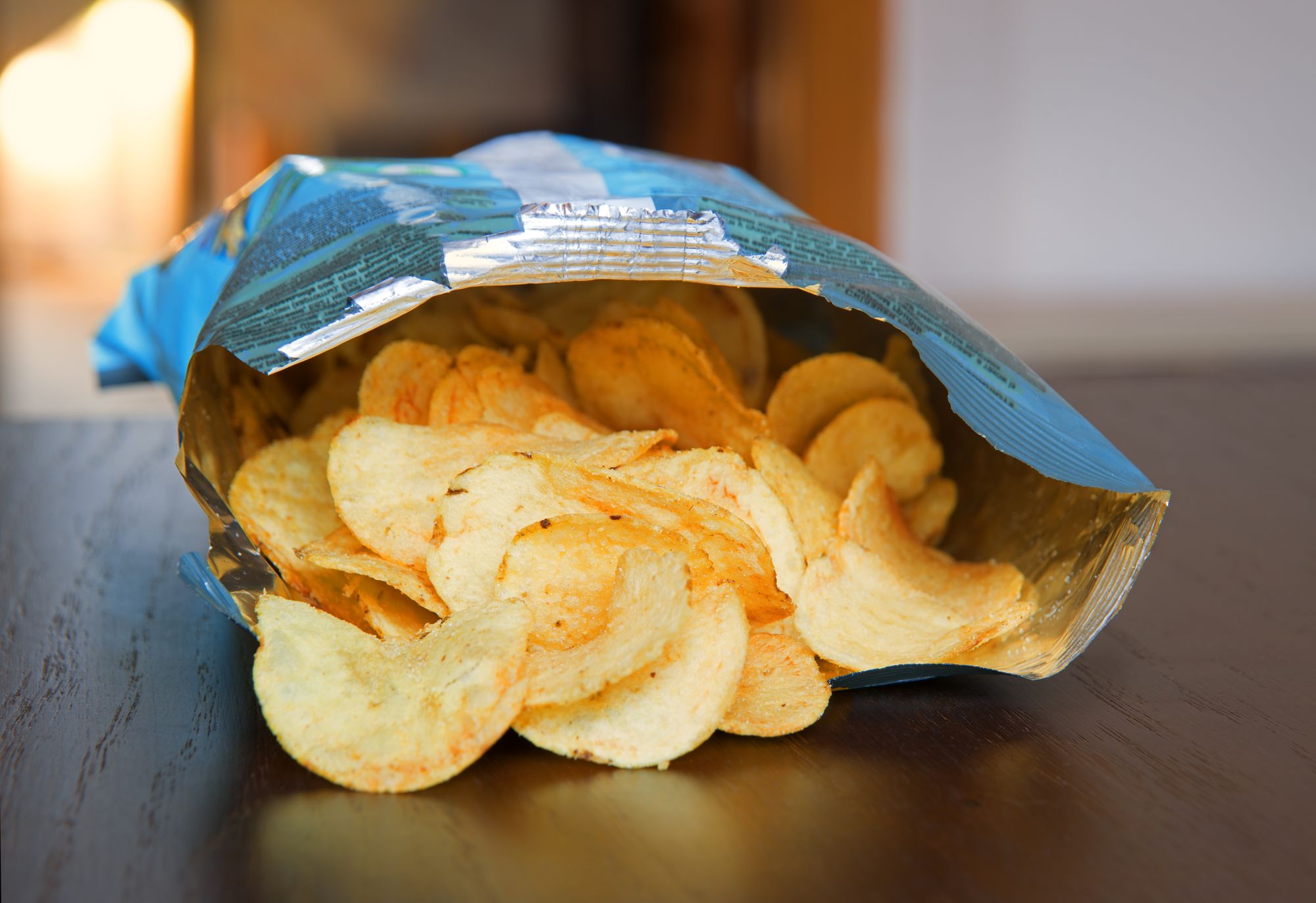When it comes to maintaining a healthy brain, there are steps you can take to slow down cognitive decline and enhance your brain power. These actions include engaging in regular exercise and being mindful of your dietary choices. While aging is an inevitable process that affects the entire body, adopting specific habits can help delay its impact on the brain.
Lisa Moskovitz, RD, CDN, author of The Core 3 Healthy Eating Plan, explains, "Although aging is unavoidable, certain eating habits can either combat or potentially expedite the aging process. In general, it's crucial to follow a nutrient-dense, anti-inflammatory, and antioxidant-rich diet to keep both the mind and body strong."
Moskovitz further emphasizes that mindlessly snacking on ultra-processed and empty-calorie foods like candy, soft drinks, and chips can potentially accelerate brain aging. If you wish to prevent unnecessary cognitive damage, take a closer look at these four snacking habits that may be hastening the aging of your brain.
1) The Negative Impact of Excessive Consumption of Added Sugar

Sugary snacks may seem like a convenient option for satisfying your sweet cravings, but they offer minimal nutritional benefits and may even have adverse effects on your overall health. In particular, they can harm your brain health in several ways.
Lisa Moskovitz, RD, CDN, author of The Core 3 Healthy Eating Plan, explains, "Snacks containing added sugar like baked goods, ice cream, candy, certain cereals, and bars, can cause a spike in blood sugar levels. Prolonged high levels of blood sugar can affect the functional connectivity of your brain, leading to brain shrinkage and atrophy over time."
2) The Negative Impacts of Mindlessly Snacking on Chips from a Large Bag

Purchasing a large bag of chips from the store and snacking on them straight out of the bag may seem convenient, but it can have a significant impact on your brain health.
Lisa R. Young, Ph.D., RDN, author of Finally Full, Finally Slim and The Portion Teller Plan, explains, "Numerous studies demonstrate that we tend to consume more food when we eat from an oversized bag. Instead, it's better to take a portion, put it on a plate, sit down, and savor it! And if you don't enjoy the taste, choose something else."
According to a study published in the American Academy of Neurology, overeating can double the risk of memory loss. Consistently consuming an excessive amount of calories over time can potentially increase the likelihood of developing memory loss or mild cognitive impairment later in life.
3) The Negative Effects of Consuming Calories in Liquid Form

Liquid calories refer to drinks that provide little nutritional value apart from unwanted calories. Common examples include soda, juice, and sweetened iced tea. Despite being popular options for a quick refreshment, they can have detrimental effects on cognitive function.
According to a study published in the journal Stroke, individuals who consumed at least one artificially sweetened drink daily were three times more likely to develop a stroke and nearly three times more likely to develop Alzheimer's disease.
Dr. Young highlights, "These liquid calorie drinks contain excessive sugar and unnecessary calories."
4) The Adverse Effects of Consuming Excessive Processed Foods

Eating an excessive amount of processed food, regardless of the type, can have a negative impact on your brain health.
Lisa Moskovitz, RD, CDN, author of The Core 3 Healthy Eating Plan, explains, "When consumed in large quantities, snacks such as chips, baked goods, and candy bars, which contain high levels of saturated fat and/or refined flours, can result in systemic inflammation. This may eventually lead to cognitive decline and memory loss."

